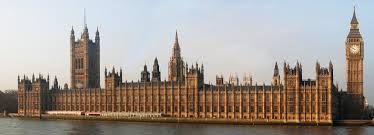By Mark Baber
April 4 – A bill passing its way through the British Parliamentary system will increase transparency in football club ownership and remove the protection so-called ‘football creditors’ have when clubs fall into financial difficulty.
Under the Football Governance (No. 2) Bill, a Private Members Bill, professional and semi-professional football clubs in England and Wales would be required to disclose the identity of their owners. The bill would also give the Football Association powers to block the ownership of a club by anyone whom they consider is not a fit and proper person as well as requiring all creditors of a football club to be compensated equally should the club go into administration.
The Bill also facilitates the opportunity for supporters organisations to raise any finance required to acquire a controlling stake in a football club.
The Bill was presented to Parliament yesterday and is now scheduled to receive its second reading on June 6.
The Bill, being introduced by Folkestone MP and Manchester United supporter Damian Collins with support from Clive Betts, Tracey Crouch, Jim Cunningham, Philip Davies, Paul Farrelly, Penny Mordaunt, Steve Rotheram, Mr Adrian Sanders, Mr Gerry Sutcliffe, Justin Tomlinson and Mr John Whittingdale, received its first reading on 24 June 2013 and has a fair distance to travel before being enacted into law.
According to the bill any football club in the top eight levels of the English professional and semi-professional football will have to publish the identities of the ultimate beneficial owners of the club. In addition, the Football Association shall not grant full or associate membership to any clubs whose owners it does not consider to be “fit and proper persons,” with the FA having absolute discretion in reaching their decision.
The bill also seeks to abolish the current “football first creditors rule” which allows other clubs and players to be paid in case of insolvency in preference to other creditors.
Finally the bill pays respect to the widespread desire for the widespread desire for more supporters’ ownership of football clubs by banning the organisers of competitions in the top eight levels of English professional and semi-professional football from making any rule against community benefit societies and member owned and controlled community interest companies operating a football club.
The “football first creditors rule” has been generally upheld by football authorities to maintain the integrity of competitions and preserve the future of clubs after they fall into bankruptcy, whilst the relevant footballing authorities are aware of owners’ identities in dealing with matters of conflict of interest and completion rules.
Increased transparency of ownership became an issue over Leeds United and in August 2011 Ken Bates slammed the Collins proposals, saying: “I suspect there is a hidden agenda here or he has a vendetta against the club or myself. I remember Harry Redknapp saying fans wouldn’t mind if Saddam Hussein owned a club so long as it was winning games and signing players and I think that applies to most clubs and certainly Leeds.”
It is therefore somewhat ironic that the bill’s progress is again being linked to Leeds United – in this case as Italian businessman Massimo Cellino awaits the outcome of his appeal against a decision by the Football League to disqualify him from owning the club due to a conviction for a tax offence last month.
Contact the writer of this story at moc.l1745207903labto1745207903ofdlr1745207903owedi1745207903sni@r1745207903ebab.1745207903kram1745207903

